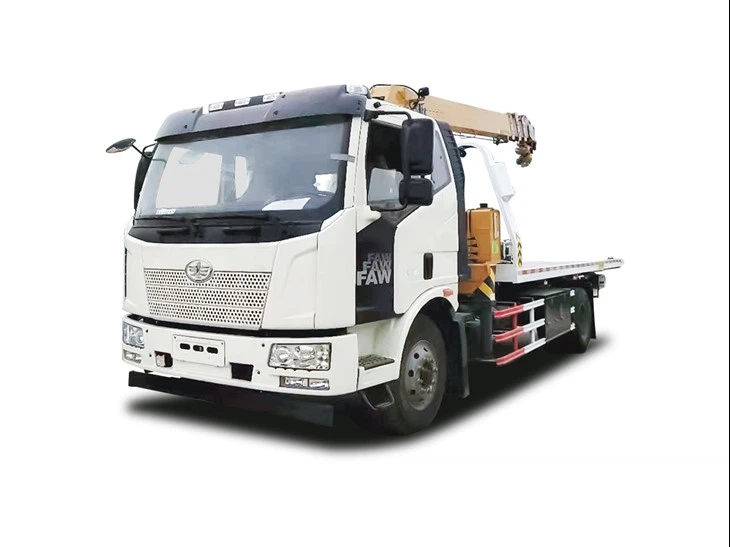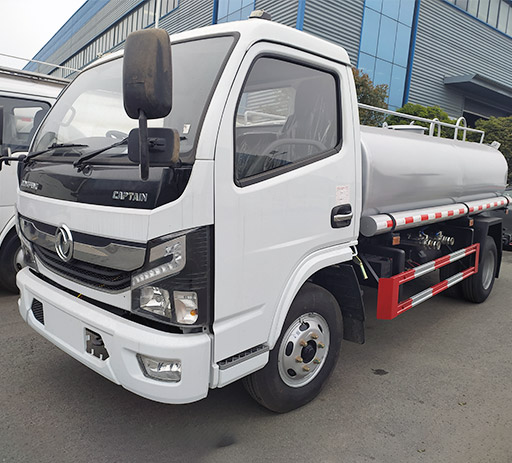The Ultimate Guide to Small Trash Trailers: Efficient Waste Management Solutions

Introduction
In today’s world, waste management has become increasingly vital. Whether for residential, commercial, or construction purposes, efficient waste disposal is essential to maintain cleanliness and organization. One solution gaining popularity is the small trash trailer. These compact trailers offer a convenient way to transport waste, making them ideal for various applications. In this comprehensive guide, we will explore everything you need to know about small trash trailers, from choosing the right one to tips for effective use and maintenance.
What is a Small Trash Trailer?
A small trash trailer is a specialized trailer designed for collecting and transporting waste materials. Ranging in size from 4 to 10 cubic yards, these trailers are often easy to tow and maneuver, making them suitable for residential areas, construction sites, and event cleanups. Unlike standard utility trailers, small trash trailers typically feature sidewalls and a secure design to prevent waste from spilling during transport.
Types of Small Trash Trailers
There are several types of small trash trailers available in the market. Understanding these can help you choose the right one for your needs.
1. Standard Dump Trailers
Standard dump trailers are the most common type. They feature a hinged rear that can be lifted to dump the contents quickly, perfect for construction debris or yard waste.
2. Enclosed Trailers
Enclosed trash trailers offer added security and protection from the elements. These are ideal for confidential waste or materials that need to stay dry.

3. Low-Profile Trailers
Low-profile trailers sit closer to the ground, making it easier to load heavy items. These are particularly useful for landscaping and construction projects where heavy debris is common.
Benefits of Using a Small Trash Trailer
Utilizing a small trash trailer offers numerous advantages that enhance waste management practices.
1. Mobility and Convenience
One of the most significant benefits is the ease of transport. Small trash trailers can be towed by standard vehicles, allowing you to move waste from one location to another without hassle.
2. Cost-Effective
Renting or buying a small trash trailer can be more economical than hiring a waste management service. You’ll save on transportation fees and can use the trailer as often as needed.
3. Increased Capacity
Compared to standard bins, small trash trailers often have higher capacities, allowing you to collect more waste in one trip.
4. Eco-Friendly Options
Many small trash trailers are designed with eco-friendliness in mind, featuring recyclable materials and efficient designs that reduce environmental impact.
Choosing the Right Small Trash Trailer
When considering a small trash trailer, keep the following factors in mind to ensure you select the best option for your needs.
1. Size
Determine how much waste you expect to transport. Small trailers generally range from 4 to 10 cubic yards. Assess your project size to select an appropriately sized trailer.
2. Weight Capacity
Check the weight capacity of the trailer, which dictates how much you can load safely. Most small trash trailers can carry between 2,000 and 5,000 pounds. Ensure the trailer’s limit aligns with your anticipated load.
3. Material and Build Quality
Choose a trailer made from durable materials, such as steel or aluminum, to ensure longevity and resistance to wear and tear.
4. Towing Compatibility

Confirm that your vehicle can tow the small trash trailer effectively. This includes checking tow ratings, hitch compatibility, and braking power.
5. Features
Look for additional features like ramps for easy loading, enclosed sides for waste security, and hydraulic lifts for effortless unloading.
Practical Examples of Use
Small trash trailers can be employed in various scenarios. Here are some practical examples:
1. Home Renovations
During home renovation projects, small trash trailers are perfect for disposing of old materials, fixtures, and construction debris. They offer a convenient solution to keep your work area tidy.
2. Landscaping Projects
For landscaping projects, small trash trailers can efficiently transport grass clippings, branches, and soil. This assists landscaping professionals in maintaining a clean job site.
3. Community Clean-Up Events
Organizations often use small trash trailers during community clean-up events. They provide a way to gather litter efficiently and help maintain a clean environment.
4. Event Waste Management
At events like festivals or fairs, small trash trailers serve as ideal waste collection points. They can hold large volumes of waste, making cleanup easier after the event concludes.
Tips for Effective Use of Small Trash Trailers
Maximize the benefits of using a small trash trailer with the following tips:
1. Organize Waste for Efficiency
Sort materials into categories (e.g., recyclables, yard waste, construction debris) for more efficient loading and disposal.
2. Secure Loads Properly
Always ensure that your load is secured before towing. Use tarps or netting to prevent debris from flying out during transport.
3. Weight Distribution
Load heavier items towards the front of the trailer to maintain balance while towing, ensuring a safer drive.
4. Follow Local Disposal Regulations
Be aware of local waste disposal regulations and schedules to avoid fines or improper waste disposal practices.
5. Regular Maintenance
Regularly inspect your small trash trailer for wear, especially tires and brakes. Keeping it in good condition ensures safety and longevity.
Maintenance Tips for Small Trash Trailers
Proper maintenance can significantly extend the lifespan of your small trash trailer. Follow these maintenance guidelines:
1. Clean After Each Use
After transporting waste, clean out the trailer to remove any debris. This prevents odors and maintains hygiene.
2. Check Tires Frequently
Inspect the tires for wear and correct pressure regularly. Replace tires when signs of significant wear become apparent.
3. Lubricate Moving Parts
Regularly lubricate hinges, ramps, and any moving components to prevent rust and ensure smooth operation.
4. Inspect Wiring and Lights
Check electrical wiring and lights regularly to ensure everything works properly for safe towing, especially on longer trips.
Cost Considerations When Investing in a Small Trash Trailer
Investing in a small trash trailer can incur various costs. Understanding these costs helps you make an informed decision:
1. Purchase Price
The cost of a small trash trailer typically ranges from $1,500 to $7,000, depending on size and features.
2. Maintenance Costs
Regular maintenance will incur costs for parts, repairs, and cleaning supplies. Budget around $100 to $300 annually for upkeep.
3. Insurance Costs
Consider insurance costs as part of your budget. Insurance can protect your investment from theft or damage.

FAQs About Small Trash Trailers
1. What can I use a small trash trailer for?
A small trash trailer can be used for residential cleanouts, landscaping projects, construction debris, event waste management, and community cleanups.
2. How do I choose the right size trailer?
Choose a trailer size based on the volume of waste you expect to transport. Small trailers typically range from 4 to 10 cubic yards, so assess your project needs.
3. Can I rent a small trash trailer?
Yes, many rental companies offer small trash trailers on a daily or weekly basis. This is an excellent option if you don’t need a trailer long-term.
4. Is towing a small trash trailer safe?
Yes, as long as your vehicle can handle the weight and you follow proper towing guidelines, using a small trash trailer is safe.
5. How do I maintain a small trash trailer?
Regular cleaning, checking tire pressure, lubricating moving parts, and inspecting wiring and lights will help maintain your trailer.
6. Are there eco-friendly small trash trailer options available?
Many manufacturers offer eco-friendly trailers made from recyclable materials and designed to reduce their environmental impact.
